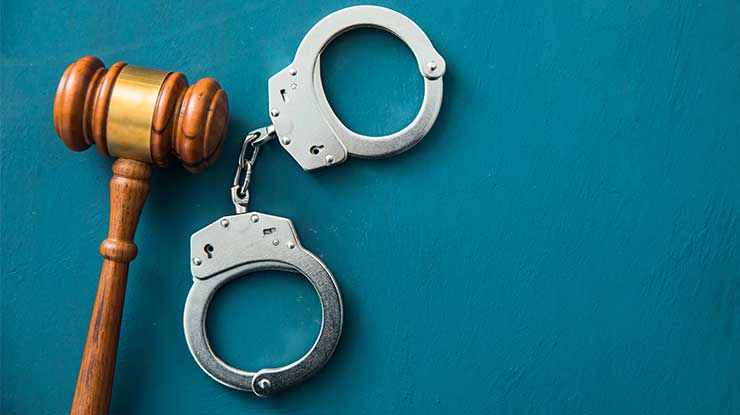In 1971, the United States federal government declared a “war on drugs.” This initiative led to much harsher criminal penalties for drug use, drug possession, and other drug law violations.
Many people have criticized these penalties and advocated for the decriminalization of drugs, which could have both advantages and disadvantages.
What Is The Decriminalization Of Drugs?
The decriminalization of drugs would remove criminal penalties for drug use and possession, possession of equipment associated with drug use (such as needles and syringes), and low-level drug sales.
Individuals would still face criminal penalties for illegal drug manufacturing and trafficking.
Decriminalization Vs. Legalization
Some people confuse decriminalization with legalization. However, a government can decriminalize drugs without legalizing them.
For example, in 2001, Portugal decriminalized all drug use but did not legalize it. Citizens who buy, possess, or use up to a ten days’ supply of illicit drugs are referred to substance abuse treatment programs instead of jails and prisons.
They may also receive fines or warnings. People who possess more than a ten days’ supply of illicit drugs or who manufacture or traffic illicit drugs still face criminal penalties.
Similarly, in 2021, Oregon became the first U.S. state to decriminalize all illegal drugs. Like Portugal, Oregon now treats drug trafficking as a criminal offense but treats possession of small amounts of illegal drugs for personal use as a health issue that requires medical treatment.
Pros Of Decriminalization
Many public health experts claim that decriminalizing drug consumption, possession, and low-level selling would have numerous advantages, such as:
Increased Access To Drug Treatment
According to the National Institute on Drug Abuse (NIDA), about 65% of United States prisoners live with drug addiction (also called substance use disorder). The majority of these individuals do not receive adequate addiction treatment while incarcerated.
Decriminalization would greatly reduce the number of people with drug problems in prison and allow them to seek proper drug treatment.
Similarly, decriminalization would make people more likely to seek life-threatening treatment for drug overdoses. If you live in a country that criminalizes drug use, you might hesitate to call 911 if you or someone you know is overdosing because you fear criminal charges.
Decreased Stigma
The term stigma refers to judgement and discrimination based on a personal characteristic, such as a disease. Drug addiction is one of the most stigmatized diseases in the world.
The war on drugs contributes to this stigma by implying that drug addiction is a moral failure rather than a medical condition.
When a country decriminalizes drugs, citizens who struggle with substance abuse and addiction are much less likely to be viewed as potential criminals. This makes it easier for people to admit they have drug problems and seek treatment.
Increased Harm Reduction Efforts
In general, when governments decriminalize drug use, they also increase harm reduction services. These services aim to reduce the risk of overdoses, infectious diseases, and other serious issues in drug users who have not yet recovered from drug addiction.
The most common services and products offered by harm reduction centers include clean syringes, fentanyl test strips, and education on how to use naloxone (a medication that can rapidly reverse an opioid overdose).
Harm reduction services can greatly improve public health. Since Portugal decriminalized drugs and increased harm reduction efforts in 2001, drug overdoses and infectious disease have significantly declined even though the country’s rates of drug use have remained roughly the same.
Redirected Criminal Justice Resources
Since the war on drugs started, the criminal justice system has designated a significant amount of resources to low-level drug crimes. Decriminalization would allow law enforcement officials to spend more time and money fighting serious and violent crimes.
Similarly, federal, state, and local governments could use the money they previously spent on drug crimes to fund treatment programs for addiction and other mental health concerns.
Cons Of Decriminalization
Some people oppose drug policy reform. They often worry that eliminating criminal penalties for drug crimes would make people more likely to experiment with drugs. They may also fear that young people would start viewing drug abuse as more socially acceptable and less dangerous.
Legalization Worries
Some people argue that decriminalization could lead to legalization. The legalization of dangerous drugs like cocaine, meth, and heroin would likely increase rates of addiction and other serious diseases.
Increased Supply Of Drugs
Decriminalization might also increase the supply of drugs on the illegal drug market. Higher supplies usually lead to lower prices. This could make it easier for people to financially support their drug addictions.
If you or someone you love struggles with substance abuse, please contact Northeast Addictions Treatment Center. Our compassionate health care providers offer mental health counseling, medication-assisted treatment, and other evidence-based, recovery-focused services.
Read More:
- Marijuana Addiction
- Legalization Of Weed
- Top 10 Heroin Cities
- What Drug Causes The Most Deaths?
- Drug Overdose Deaths In The U.S.
- Controlled Substances In Massachusetts
- Teen Drug Use
- What Is A Teener Of Meth?
- What Is Hexahydrocannabinol?
Sources:
National Institute on Drug Abuse — Criminal Justice DrugFacts
Office of National Drug Control Policy — Drug Decriminalization in Portugal: Challenges and Limitations
United Nations Office on Drugs and Crime — Approaches to Decriminalizing Drug Use & Possession




